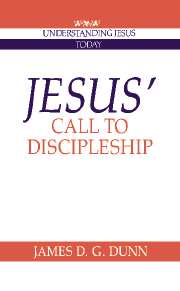4 - The Boundary Breaker
Published online by Cambridge University Press: 01 February 2010
Summary
Those who are well have no need of a physician, but those who are sick: I came not to call the righteous, but sinners.
(Mark 2:17)Introduction
Even more notable than Jesus' concern for the poor was his concern for “sinners.” According to Luke 4:18, Jesus claimed to be anointed by the Spirit “to preach good news to the poor.” According to Mark 2:17 he claimed to have come with this specific purpose: to “call sinners.” And it was this latter aspect of his mission which evidently drew the greater comment. His followers and companions are repeatedly called “sinners” by their critics in tones of manifest and deepest disapproval. He allowed “a woman of the city, a sinner” to touch him (Luke 7:37, 39). “Tax collectors and sinners” were attracted to him and he did not hesitate to receive them and eat with them (Luke 15:1–2). His readiness to dine with Zacchaeus drew the unfavorable comment that “He has gone in to be the guest of a man who is a sinner” (Luke 19:7). His eating a meal with Matthew/Levi and his friends occasioned the critical question, “Why does he eat with tax collectors and sinners?” (Mark 2:16). His whole life-style and style of ministry was deeply offensive to many: “Behold, a glutton and a drunkard, a friend of tax collectors and sinners” (Matt. 11:19). In the same vein Jesus himself did not hesitate to point out to his religious critics that “the tax collectors and the prostitutes go into the Kingdom of God before you” (Matt. 21:31).
- Type
- Chapter
- Information
- Jesus' Call to Discipleship , pp. 62 - 91Publisher: Cambridge University PressPrint publication year: 1992



